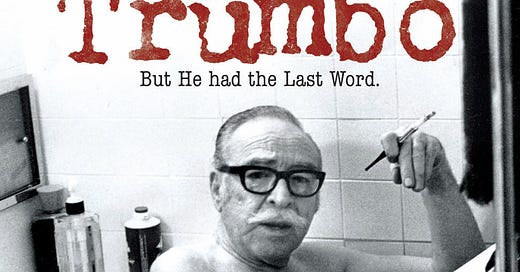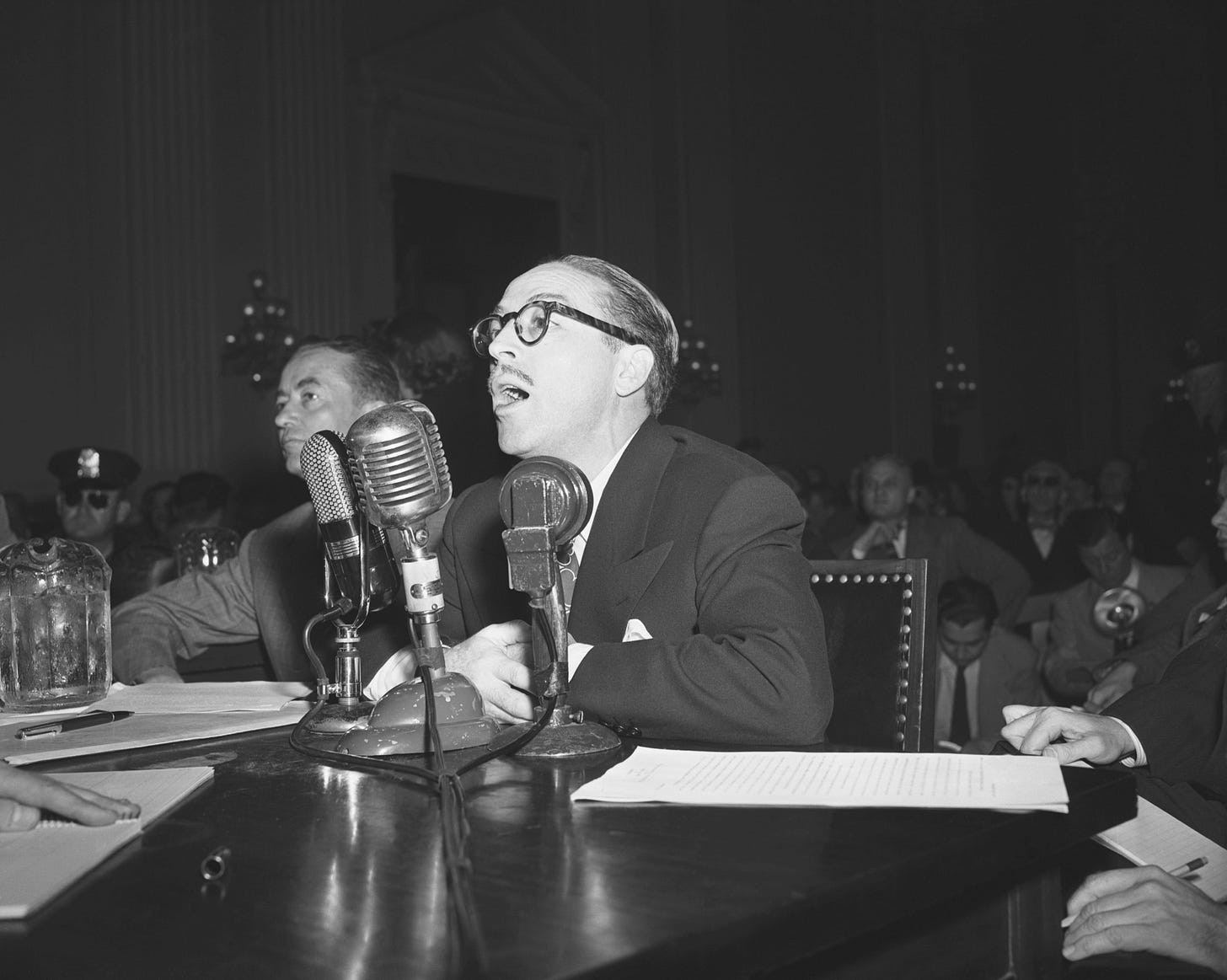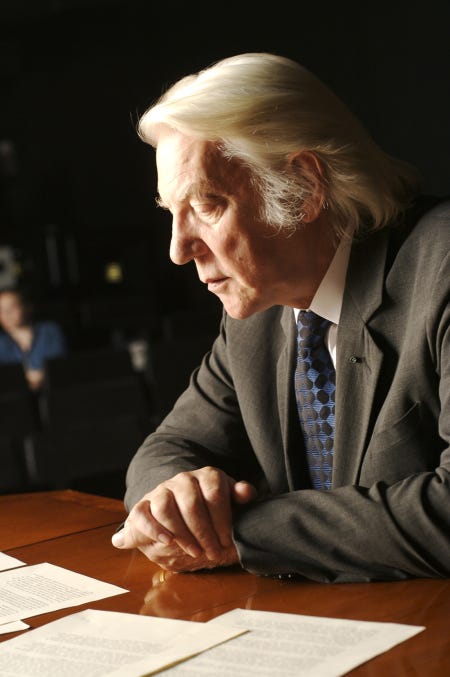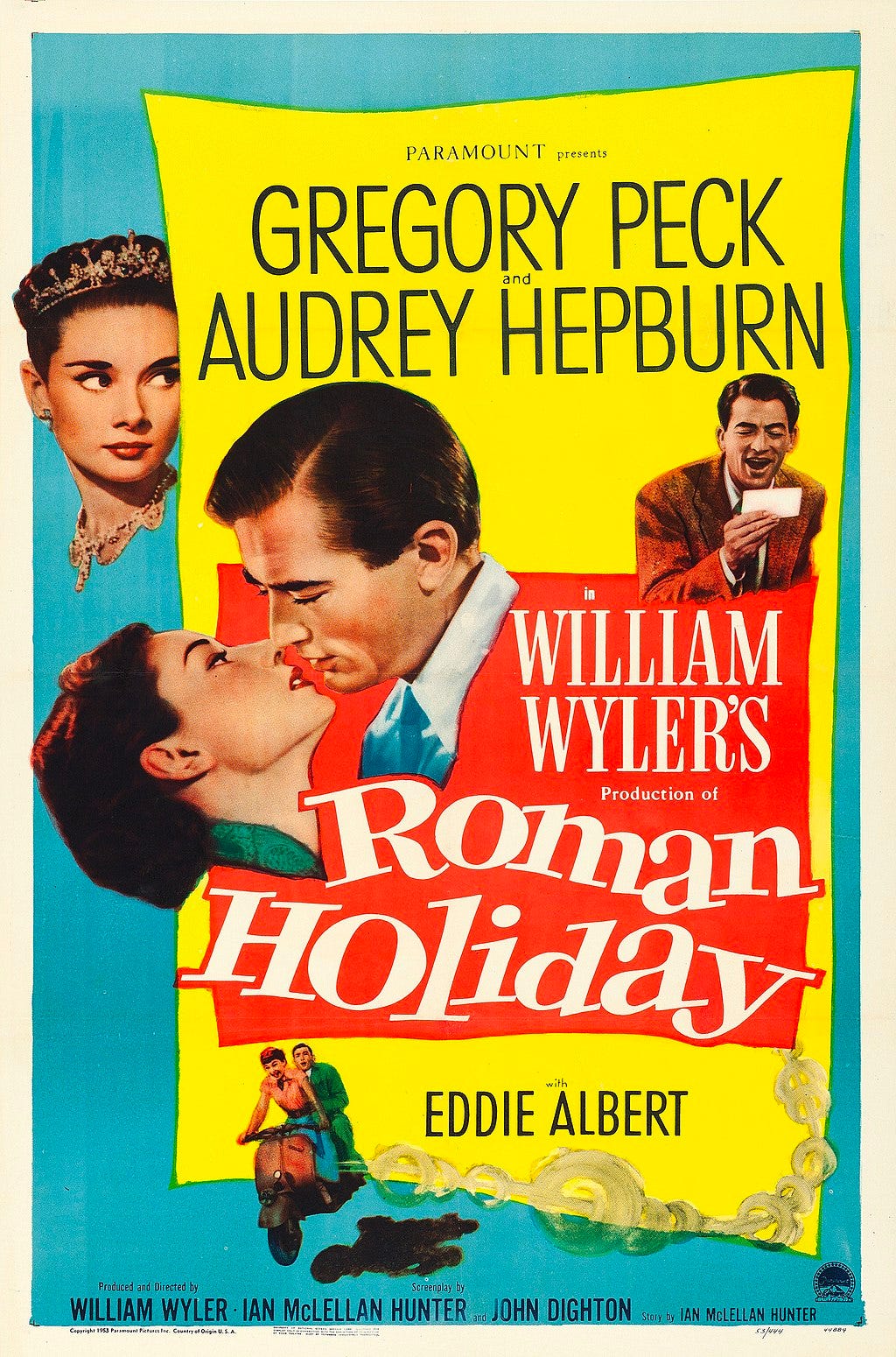As we prepare for the release of First Word on Horror, the first series from Etch, I realize this is not the first time I’ve been inspired by the written word.
I first experienced the play Trumbo: Red White and Blacklisted by Christopher Trumbo when a series of actors played the lead role on stage at the Westside Theatre in Manhattan. Directed by Peter Askin, who would go on to direct the documentary I produced, the play is based around letters written by Dalton Trumbo. Trumbo was a brilliant, irascible screenwriter who did not suffer fools.
It’s not that he didn’t suffer them lightly, as the saying goes, he didn’t suffer them. Period.
The letters are an extraordinary insight in to a man who was part of the Hollywood elite and then just as suddenly blacklisted by the House UnAmerican Activities Committee because he refused to answer questions about his political affiliations. He was jailed for a year for contempt of congress and as Trumbo said later in an interview:
“It was a completely just verdict, I had contempt for that congress, and several since”.
In the letters you see Trumbo’s brilliance with language, his impatience, his convictions, his love for his family and friends.
It's that last element that sneaked up on Chris Cooper.
Cooper was playing Trumbo that April night. In one of the letters to his son there was a particularly touching moment and Cooper took a dramatic pause. The pause expanded and I was suddenly aware that he was holding back tears. But he was no longer an actor. I came to learn later that Cooper’s son was non-verbal and quadriplegic and that so much of Cooper’s life was about being with his son, caring for him and loving him. Trumbo’s writing had reached inside and Cooper was brilliant and brave and generous in sharing that two-minute silence with us.
It’s one of the most electrifying experiences of my life.
So when I ventured out on my own to become a producer, the documentary adaptation of that play was the first thing I wanted to make.
It had all the elements of a great movie: flawed hero in a David vs. Goliath struggle; amazing writing; love, family, belly laughs, tragedy, and a healthy dose of radical politics. We decided to cast a different actor to read each of the letters and the first kick in the nuts came when Chris Cooper’s agent told me he wasn’t available during our shooting dates. We had a small budget and had rented a theatre in which to shoot and we had it for two weeks. We were wildly ambitious in our casting choices given that we had to make these actors’ schedules fit ours.
But two things are very clear to me now: actors love real heroes and they love great writing.
And for all his flaws, Trumbo was a hero and an extraordinary screenwriter. A man who would go to jail rather than inform on his friends; an artist who was still so driven he continued to write when told by his country that he could not.
And the things he wrote!
If you haven’t had the ridiculous pleasure of seeing Roman Holiday, watch it.
If you haven’t had your inner-revolutionary spirit ignited by the “I’m Spartacus” scene in Spartacus, do yourself a favor.
Trumbo won two Oscars while blacklisted, writing under pseudonyms and trying to put food on the table. Roman Holiday in 1953 and The Brave One in 1956. His refusal to stop writing and his refusal to bend his unerring faith in the freedom of belief and expression were key factors in the crumbling of the blacklist.
Over that two-week period, we shot with some of the finest actors working in American cinema. Liam Neeson, Donald Sutherland, Paul Giamatti, David Strathairn, Michael Douglas, Joan Allen, Nathan Lane (his reading of the letter about masturbation is worth the price of entry alone).
We interviewed Dustin Hoffman, Magnificent Seven screenwriter Walter Bernstein, and Kirk Douglas, a powerful figure in Hollywood in the 50’s and 60’s who had very much fought for the end of the blacklist.
We wrestled with the film in post-production and tried to balance the need to offer context without ruining the beautiful flow of the original play. In an early cut, we gave Kirk Douglas too much credit for single-handedly ending the blacklist and I received an amazing email: Chris Trumbo channeling his dad and eviscerating me as a producer for allowing such a thing! In another valuable roughing-up, we were criticized by the heads of Sony Classics for not showing enough of Trumbo’s flaws. They had requested a private screening when we premiered the film at the Toronto Film Festival and I naively assumed this meant they would buy the film. But we had plenty of interest from other distributors and ultimately went with Samuel Goldwyn Pictures and Red Envelope, an early incarnation of Netflix.
The film was warmly received by critics and movie-goers and would play a role in inspiring the Jay Roach-directed feature starring Bryan Cranston.
What you see in Trumbo and what became abundantly clear to me while shooting First Word on Horror, is the amazing dance between a writer’s life and their work. The distillation of trauma, of memory, of political oppression – it’s all there in a great writer’s work. It’s an incredible gift that they give us and when it’s really good, just like with Chris Cooper on that stage that night, they can reach inside you when you least expect it.
Trumbo is streaming on several different platforms including Peacock, Tubi, and the Roku Channel.
First Word on Horror will be premiering here in early 2025.









